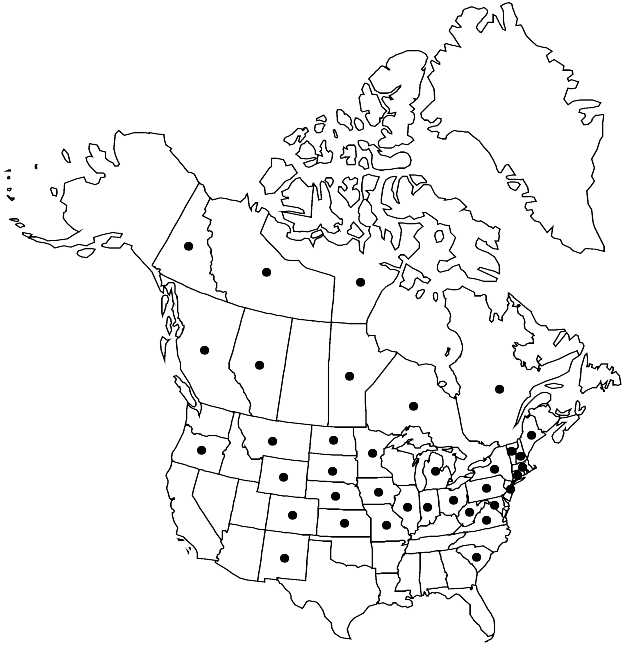Difference between revisions of "Camelina sativa"
Stirp. Austr. Fasc. 1: 17. 1762.
FNA>Volume Importer |
imported>Volume Importer |
||
| Line 6: | Line 6: | ||
|place=1: 17. 1762 | |place=1: 17. 1762 | ||
|year=1762 | |year=1762 | ||
| + | }} | ||
| + | |special_status={{Treatment/ID/Special_status | ||
| + | |code=W | ||
| + | |label=Weedy | ||
| + | }}{{Treatment/ID/Special_status | ||
| + | |code=I | ||
| + | |label=Introduced | ||
}} | }} | ||
|basionyms={{Treatment/ID/Basionym | |basionyms={{Treatment/ID/Basionym | ||
| Line 29: | Line 36: | ||
|elevation=0-1500 m | |elevation=0-1500 m | ||
|distribution=Alta.;B.C.;Man.;N.W.T.;Nunavut;Ont.;Que.;Yukon;Colo.;Conn.;D.C.;Ill.;Ind.;Iowa;Kans.;Maine;Mass.;Mich.;Minn.;Mo.;Mont.;Nebr.;N.H.;N.J.;N.Mex.;N.Y.;N.Dak.;Ohio;Oreg.;Pa.;S.C.;S.Dak.;Vt.;Va.;W.Va.;Wyo.;Europe;Asia;introduced also in South America;Australia. | |distribution=Alta.;B.C.;Man.;N.W.T.;Nunavut;Ont.;Que.;Yukon;Colo.;Conn.;D.C.;Ill.;Ind.;Iowa;Kans.;Maine;Mass.;Mich.;Minn.;Mo.;Mont.;Nebr.;N.H.;N.J.;N.Mex.;N.Y.;N.Dak.;Ohio;Oreg.;Pa.;S.C.;S.Dak.;Vt.;Va.;W.Va.;Wyo.;Europe;Asia;introduced also in South America;Australia. | ||
| + | |introduced=true | ||
|discussion=<p>R. L. McGregor (1985) indicated that <i>Camelina sativa</i> is no longer established in North America; we tend to agree because we have not seen any collections made within the past 40 years.</p> | |discussion=<p>R. L. McGregor (1985) indicated that <i>Camelina sativa</i> is no longer established in North America; we tend to agree because we have not seen any collections made within the past 40 years.</p> | ||
|tables= | |tables= | ||
| Line 52: | Line 60: | ||
|publication title=Stirp. Austr. Fasc. | |publication title=Stirp. Austr. Fasc. | ||
|publication year=1762 | |publication year=1762 | ||
| − | |special status= | + | |special status=Weedy;Introduced |
| − | |source xml=https:// | + | |source xml=https://bibilujan@bitbucket.org/aafc-mbb/fna-data-curation.git/src/bb6b7e3a7de7d3b7888a1ad48c7fd8f5c722d8d6/coarse_grained_fna_xml/V7/V7_689.xml |
|tribe=Brassicaceae tribe Camelineae | |tribe=Brassicaceae tribe Camelineae | ||
|genus=Camelina | |genus=Camelina | ||
Revision as of 23:59, 27 May 2020
Annuals or biennials. Stems unbranched or branched distally, (1.2–)3–10(–13) dm, glabrous or sparsely pubescent basally, trichomes branched, rarely mixed with fewer, simple ones. Basal leaves often withered by anthesis. Cauline leaves: blade lanceolate, narrowly oblong, or linear-lanceolate, (1–)2–7(–9) cm × 2–10(–15) mm, base sagittate or strongly auriculate, margins entire or, rarely, remotely denticulate, apex acute, surfaces glabrescent or sparsely pubescent, trichomes usually forked. Fruiting pedicels ascending, (8–)12–20(–27) mm. Flowers: sepals 2–3(–4) × 0.5–1 mm; petals yellow, (3.5–)4–6 × 1–1.5 mm; filaments 1.5–3 mm; anthers ca. 0.5 mm. Fruits pyriform or broadly obovoid, 7–9(–13) × 4–5(–6) mm (distinctly longer than wide), apex often subtruncate; valves each with prominent midvein, margin narrowly winged; style 1.2–2.5 mm. Seeds dark brown, (1.5–)1.8–2.5 × 0.7–1 mm. 2n = 40.
Phenology: Flowering May–Jun.
Habitat: Farms, grassy areas, fields, waste places
Elevation: 0-1500 m
Distribution

Introduced; Alta., B.C., Man., N.W.T., Nunavut, Ont., Que., Yukon, Colo., Conn., D.C., Ill., Ind., Iowa, Kans., Maine, Mass., Mich., Minn., Mo., Mont., Nebr., N.H., N.J., N.Mex., N.Y., N.Dak., Ohio, Oreg., Pa., S.C., S.Dak., Vt., Va., W.Va., Wyo., Europe, Asia, introduced also in South America, Australia.
Discussion
R. L. McGregor (1985) indicated that Camelina sativa is no longer established in North America; we tend to agree because we have not seen any collections made within the past 40 years.
Selected References
None.